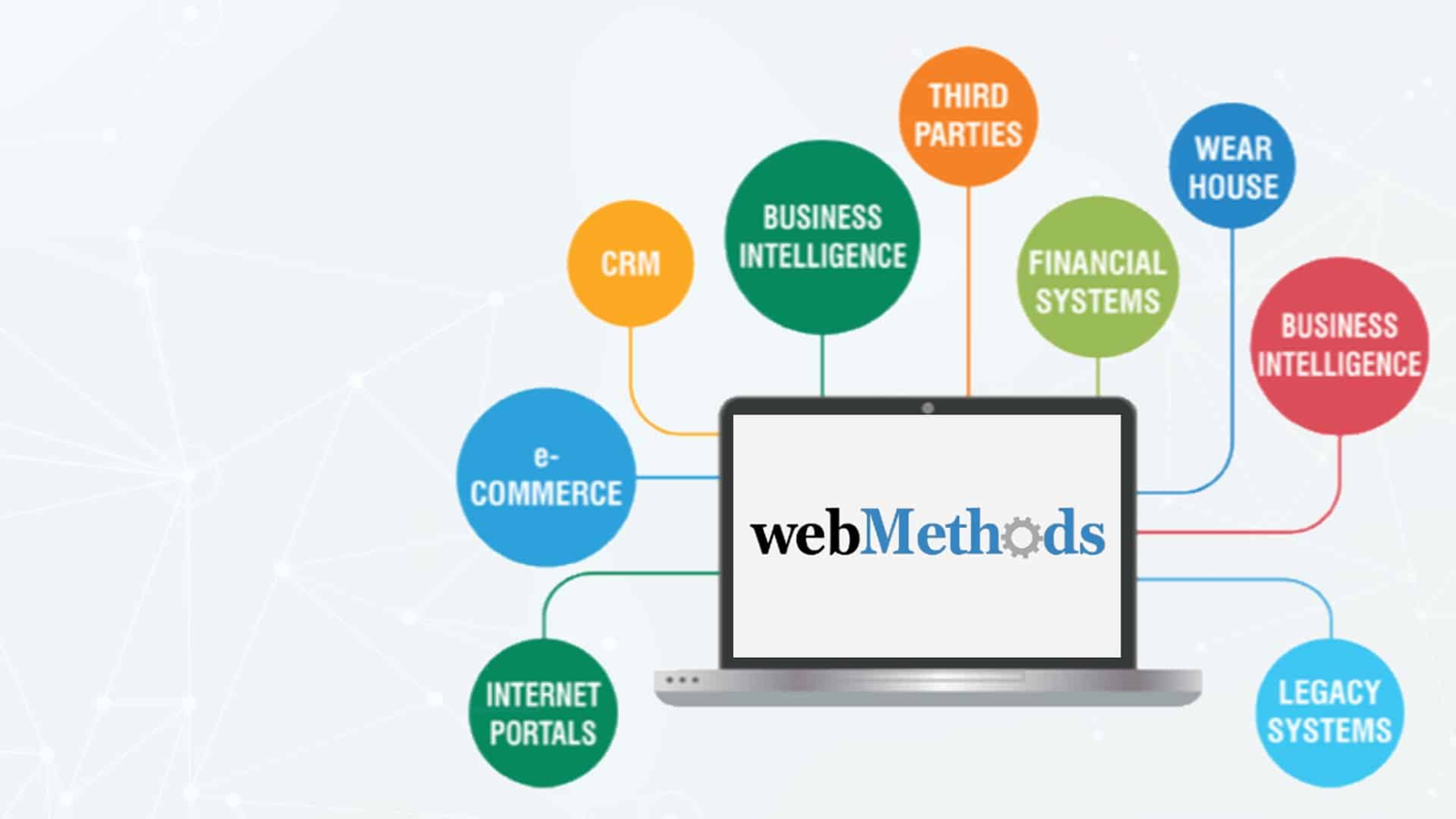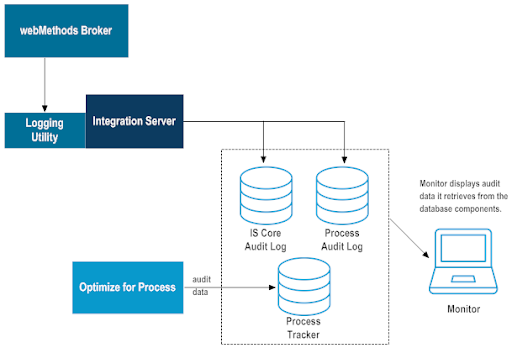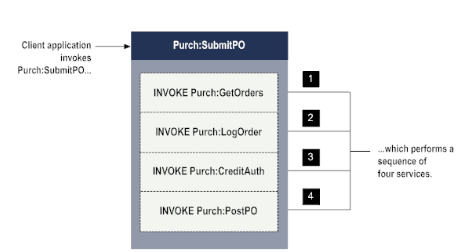A Complete Guide to WebMethods – Tutorial

The webMethods tutorial offers a complete overview of the integration platform used to connect resources. Whether you are a beginner or an advanced learner, this webMethods guide covers everything from webMethods architecture to real-time use cases. At the end of the article, you will gain a conceptual understanding of how webMethods simplifies enterprise integration and drives digital transformation.
webMethods, a product of Software AG, is a robust integration platform that connects applications, data, and systems across cloud, hybrid, and on-premises environments.
The platform offers businesses a range of integration capabilities within a single platform, making enterprise integration more agile and efficient.
Are you interested in exploring more about webMethods integration? This webMethods tutorial walks you through the capabilities and applications of webMethods.
Let’s dive in!
WebMethods Overview
WebMethods is a cloud integration tool you can use to integrate with applications, data, and other resources. Whether it is a new application or a legacy one, webMethods simplifies integration requirements.
Enterprises adopt webMethods to accelerate their complex integration tasks. The key advantages of webMethods are listed below.
- You can design and develop integrations anywhere
- You can monitor all the integrations through a single window
- You can make your integrations comply with regional data requirements using local runtimes
If you want to learn WebMethods further, you can join MindMajix’s WebMethods Training. The training will help enhance your hands-on expertise in webMethods integration and propel your career forward.
WebMethods Architecture
The diagram below shows the webMethods Monitor architecture.

Let’s see how this architecture works.
- webMethods broker transfers data to the integration server through the logging utility.
- The integration servers load the data into the IS Core audit log database.
- Then, the data is also logged in the process audit log databases for webMethods-executed processes.
- Audit data is logged in the process tracker database for externally executed processes.
- Monitor receives data from all three databases.
WebMethods Components
webMethods integration server
The server provides a secure, efficient environment for executing services. It helps decode client requests, identify the requested services, and pass data to the services. It encodes the services’ outputs and passes them to clients.
webMethods Designer
It provides a range of service development features for users. You can use the features to build, edit, and debug services and integration logic. You can use the Designer to create the document types and schemas for data validation and more.
My webMethods Server
This server is a runtime container that provides a ready-made environment for running webMethods applications. The server allows you to develop additional user interface pages and administrative tools in the webMethods platform.
WebMethods Installation
The latest version of the webMethods integration platform is 11.1.X, released in September 2024.
WebMethods Installation
The table below shows the hardware requirements for the webMethods server installation.
Key Products | Hard Drive Space | RAM |
ActiveTransfer Agent | 10 MB | 512 MB |
webMethods API Gateway | 2 GB | 1.75 GB |
ApplinX Server | 100 MB | 80MB + 300KB per user |
webMethods Developer Portal | 20 GB | 2 GB |
Integration Server | 300 MB | 1 GB |
WebMethods Flow Services
You can create a flow service using the webMethods flow language. A single flow service can include a sequence of services and streamline data flow among them.
For example, you can build a flow service to process a purchase order (PO). This flow service can have the following series of services.
- Receiving PO from buyer
- Logging the order in an audit trail file
- Processing a credit check
- Passing the order to the ordering system.

WebMethods Adapters
WebMethods Adapters typically run on the integration server. You can use webMethods adapters to connect resources to the webMethods product suite. Mainly, the adapters primarily convert data between the source format and the webMethods product suite format.
The key advantage of using an adapter is that you don’t need to create complex custom code to connect resources into your integration solutions.
Let’s look at some key webMethods adapters.
- webMethods adapter for SAP: This adapter extends SAP business processes through effective integration. It supports both asynchronous and bidirectional real-time communication.
- webMethods adapter for JMS: This adapter enables you to exchange messages with JMS providers via JMS APIs.
Universal Messaging (UM)
WebMethods Universal Messaging (UM) is a middleware product that delivers messages across public, private and wireless infrastructures. It offers a wide range of functionalities, including clustering, realm federation, joins, JMS, queues, and low-latency IO.
UM provides the enterprise manager for UI-based administration and APIs for server administration.
WebMethods – Logging and Exception Handling
- Message logging
- Error Logger
- Server Logger
- Service Logger
- Exception Handling
- AdapterException: The exceptions thrown by an adapter come within this exception type. Note that exceptions thrown during adapter service execution do not fall under this type.
- AdapterConnectionException: These exceptions are thrown when there is an issue in establishing a connection to the back-end.
Real-world use cases of webMethods
- Manufacturing: Komatsu, a global manufacturer of earthmoving equipment, leverages webMethods and achieved 30 % faster deployments and an 80% reduction in time to integrate a single file source.
- Banking: adopting webmethods enables banking services to process high-volume transactions seamlessly. The platform simplifies the implementation of automated controls to reduce operational risks.
- Insurance: As the webmethods platform can integrate data from all IT systems, it helps customers find the right policies more easily. Webmethods simplifies quote delivery in real time and processes claims faster.
- Retail: webmethods enables businesses to make informed decisions by implementing agile inventory management practices.
- Logistics: companies use webmethods to connect effectively with shippers, freight forwarders, logistics hubs, and other partners. It helps companies retain customers by delivering efficient service.
Career Opportunities and Interview Preparation
This webmethods guide covers the career prospects for integration professionals and interview guidance in this section.
Let’s have a look!
- Career opportunities
Career opportunities are multiplying for skilled webMethods professionals worldwide. Let’s check out some key facts below.
- HG Insights reports that key industries such as banking, pharmaceuticals, retail, manufacturing, and telecommunications use webMethods as their iPaaS platform.
- ZipRecruiter reports that webMethods professionals can earn between $21,500 and $57,000 per year in the USA. Glassdoor states that webMethods professionals can earn between 5 Lakhs and 18 Lakhs per annum in India.
- Frequently Asked interview questions?
- What are the webMethods integration tools?
- Explain sequence operations.
- Define an element in webMethods.
- What is a trigger in webMethods?
Real-World Project Scenarios
Summary
How To Contact?
Address: 404, Shivank Building, Apte Road, Opt Venus FC Road, Deccan, Pune, Maharashtra – 411004
Conclusion
Let’s sum up! webMethods is a robust integration platform that connects resources, automates workflows, and simplifies enterprise integration. It enables deployments in multiple environments.
This webmethods tutorial helped you gain a solid understanding of the webmethods features and capabilities.
FAQs
Yes, you can learn webMethods easily. If you have some basic exposure to integration concepts, it will help you learn webMethods quickly.
MindMajix offers 25-hour, expert-led live online webMethods training, as well as 7-hour self-paced on-demand training. You can choose any learning mode that suits you and complete your learning quickly.
Yes, you can find the following eLearning resources to expand your webMethods knowledge.
- webMethods Interview Questions
- webMethods Quizzes
- webMethods vs. MuleSoft